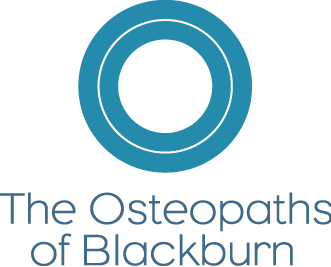Sleep, Get better at it!
A good night’s sleep
Sleep – we all need it, most of us love it and a lot of us do not get enough of it.
A solid sleep cycle is important for many different reasons including;
- Immune system function: sleep deprivation can alter the immune system so it does not function optimally. This can make you more vulnerable to getting sick. This is particularly important as we enter prime cold and flu season. Good immune function promotes good healing. Allowing your body to rest and regenerate, particularly if you are injured is vital, otherwise you may be vulnerable to further injury/sickness.
- Learning and memory: a good night’s sleep helps the brain to consolidate new information, allowing what you learn to be committed to long term memory. With exam time looming, this is an important point for our patients who are students to take note of.
- Cardiovascular health: chronic sleep deprivation has been linked to disorders of the heart, such as hypertension (high blood pressure).
- Metabolism and weight: a lack of sleep can alter the way the body breaks down carbohydrates, which can lead to weight gain. It can also alter the hormones which control appetite, which may also affect your weight.
- Mental alertness: we all know how sleep deprivation can affect our concentration. This can lead to mistakes being made at work, home or while driving which can be dangerous to yourself, loved ones or those around you.
If you are struggling to get a solid night’s sleep; or have difficulty falling/staying asleep here are some ideas which could assist you to get some serious shut eye.
Diet: The foods you consume leading up to bed time can largely affect the quality of your sleep. It has been noted that foods high in ‘tryptophans’ can assist sleep. Tryptophans are a protein in the body which helps to make hormones that bring on sleep. The hormones known as melatonin and seratonin play a large role in your sleep/wake cycles and predominate while you’re sleeping. It has been suggested that foods which contain tryptophans may contribute to the levels of these hormones in your body, hence contributing to better quality sleep. Foods containing high levels of tryptophans include: walnuts, almonds, banana, honey, eggs and foods rich in calcium such as cheese, yoghurt, milk etc.
It has also been suggested that foods which contain vitamin B6 may also help induce slumber, as B6 is also used in the production of sleep hormones within the body. Foods which contain B6 include fish such as tuna and salmon, raw garlic and pistachio nuts.
Avoiding meals high in saturated fat is also recommended, as it has been known to disrupt sleep cycles. It should be noted that consuming large, heavy meals before bed time is not recommended as it will increase pressure on your digestive system and may lead to discomfort as you lie down. A heavy meal may also stimulate the need to go to the bathroom – adding further disruption to sleep.
I don’t know about you, but I love a warm drink later in the evening especially as we head into the cooler months. Whether it’s tea, coffee or a sneaky hot chocolate, be wary of the amount of caffeine in the food and drinks you consume in the hours leading up to sleep. If you think coffee is affecting your sleep, you may like to try substituting it for a green tea in the evening, which has less milligrams of caffeine per serve.
Alcohol: we all know it can easily put you to sleep, however the quality of alcohol-induced sleep is poor. It can lead to frequent disruptions, restlessness, dehydration and night sweats. If you like to end the day with a glass or two, make sure you drink a glass of water for each glass of alcohol you consume. This will dilute the effects of the alcohol (and lessen the likelihood of a headache in the morning!)
Smoking: nicotine is a stimulant, with effects similar to caffeine. As your health care practitioners we recommend that you try and avoid smoking altogether. However if this is not yet an option for yourself, you should at least avoid a sneaky cig before bed time as it is likely to keep you awake.
Exercise: It’s simple. The more energy you expend during the day, the more sleep your body will require for you to recover and get ready to start a new day. Try and aim to do some form of activity at least once a day. Try not to exercise too close to bed time though, as it may take your body a while to relax afterwards. Exercise induces the release of hormones such as adrenaline, which stimulates your body and keeps you alert. It’s not ideal to feel this way when you are trying to sleep.
If you have any questions regarding sleep and how you can get more of it, ask your osteopath today!
Sleep well!
Yours Sincerely,
Nicole Tuminello
Registered Osteopath

